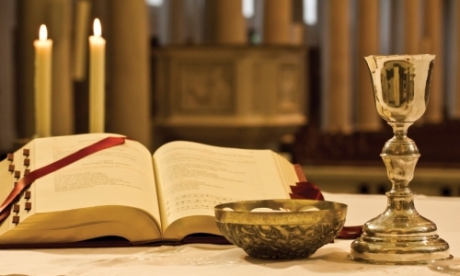Four out of five Catholic priests in public ministry in Ireland want the current English translation of the Roman Missal revised or scrapped.
This is the finding of a survey of clergy views carried out by the Association of Catholic Clergy (ACP) in Ireland.
The survey also showed a significant percentage of priests still use texts from a 1973 missal.
Views were taken from 191 priests, who were randomly selected from the alphabetical listing of clergy in Ireland.
The survey was taken between March 31 and April 11.
It shows 35 per cent of priests surveyed favour replacing the current translation immediately and 45 per cent “as soon as a revised missal becomes available”.
Close to two thirds of those surveyed said they were either dissatisfied (33.5 per cent) or very dissatisfied (27.2 per cent) with the missal.
This compared with just a quarter who were either very satisfied (4.7 per cent) or satisfied (19.9 per cent).
Even among those who were satisfied, more than half wanted to see a revised missal within a few years.
Some 147 respondents said they used texts from the new missal exclusively, 32 used a combination of texts from the new missal and a 1973 missal, while ten priests used text solely from the latter.
The findings of the survey were presented to three Irish bishops.
The ACP asked the bishops to encourage parish councils to express their views on the missal and, if possible, to survey those views.
Fr Sean McDonagh, SSC, a linguist who attended a meeting between the ACP and the bishops, said one bishop expressed surprise at the survey findings.
Fr McDonagh called on bishops in England and Wales to conduct a similar survey among their priests and people
The full text in English of the new translation of the Mass was introduced in Advent, 2011.
Before and during its implementation there were complaints from clergy and laity that the translation was too literal, with antiquated words and over-long sentences.
The new missal was translated according to Liturgiam Authenticam, issued by the Congregation for Divine Worship and the Discipline of the Sacraments in 2001.
This called for a more direct translation from the Latin to vernacular languages.
Sources
